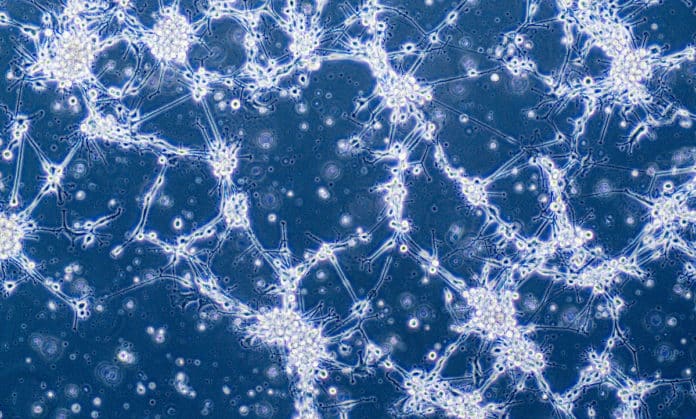A group of scientists at the University of Sussex moves a step closer in developing Blood Test to diagnose Glioblastoma, the most aggressive type of brain tumor.
Professor Georgios Giama and team at the University of Sussex has identified novel biomarkers within bodily fluids, which signal the presence of the tumor. This could be the first step to develop a Blood Test to Detect Glioblastoma.
Biomarkers are a group of signatures molecules specific for a particular disease. These Biomarkers also indicates the presence of cancer in the body. Targeting Cancer biomarkers is critical to detect cancer. These are molecules that are either exclusively found or are over-expressed in cancer cells, as compared to normal, healthy cells.
This study has been published in Nature, wherein Professor Georgios and his team describe specific Biomarkers. These Biomarkers are associated with extracellular vesicles, which are released by Cancerous cells for Cell Signalling and Communication.
The discovery suggests that bodily fluids like blood could be a more natural way to detect glioblastoma. A simple Blood Test For Glioblastoma would be an advantage over a biopsy, which is both invasive and painful for the patient as well as takes considerable time.
Georgios Giamas, Professor of Cancer
Cell Signalling in the School of Life Sciences, said that Glioblastoma is the most aggressive form of brain tumor. He added that his team of scientists had discovered biomarkers, which helps in detecting Glioblastoma. Soon, there could be a way to use bodily fluids to test for the tumor.Currently, a team of researchers is finding ways to develop Liquid Biopsies like blood tests to spot other types of cancers. Liquid Biopsies is a technique wherein it would allow doctors to take a small sample of blood and check for a range of biomarkers. This test will help identify the subtype of the tumor as well.
Dr. Thomas Simon, the co-author of this research, said that Liquid biopsies would mean a less invasive procedure for patients leading to the generation of faster reports. The new Liquid Biopsies would prove to be invaluable to the patients with an aggressively developing tumor. He further highlighted the importance of discovering more such Biomarkers which would help in detection Glioblastoma.
There are three sub-types of Glioblastoma. All the sub-types have specific biomarkers. More clinical studies need to be carried out to detect these Biomarkers. This would be the key to improve the accuracy of diagnosis and develop a more personalized Blood test to detect Glioblastoma and its subtype.
Rosemary Lane, a Ph.D. student in Professor Giamas’ lab and co-author of the study, added that Glioblastoma subtyping is crucial for patient prognosis and personalized therapies. She said that molecular differences could be identified due to the extracellular vesicles. These molecular differences would lead to the discovering of more such Biomarkers to detect Glioblastoma subtypes.
The next challenging step for researchers is to test and validate the presence of these newly described biomarkers in glioblastoma patients.
Action Against Cancer, the charity funding this study said Liquid Biopsy Technique could ultimately become an option for diagnosing Glioblastoma.






























